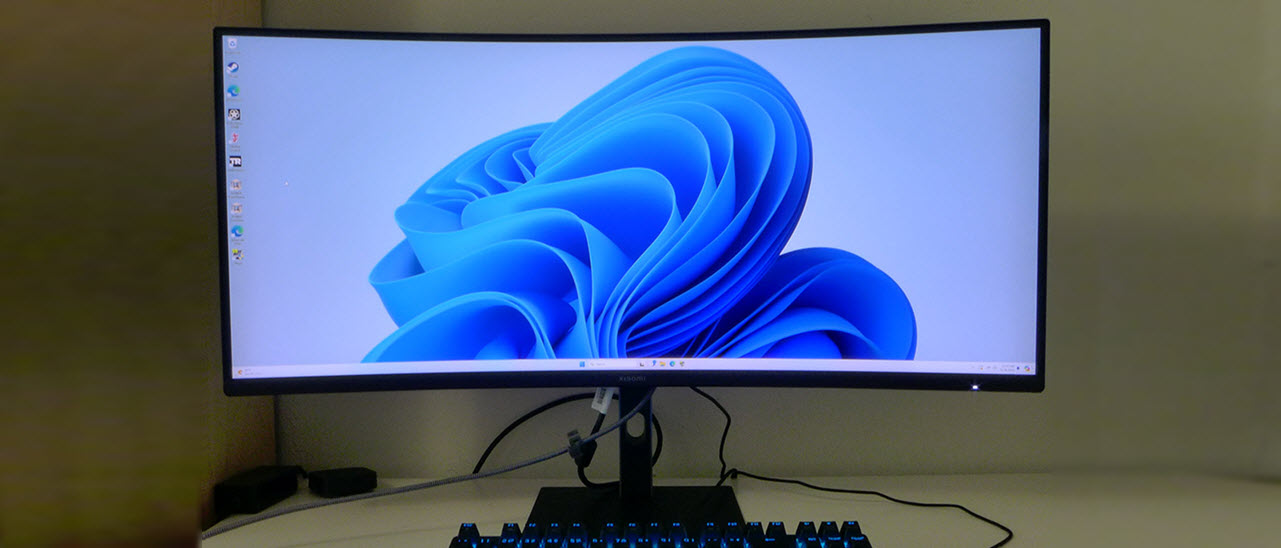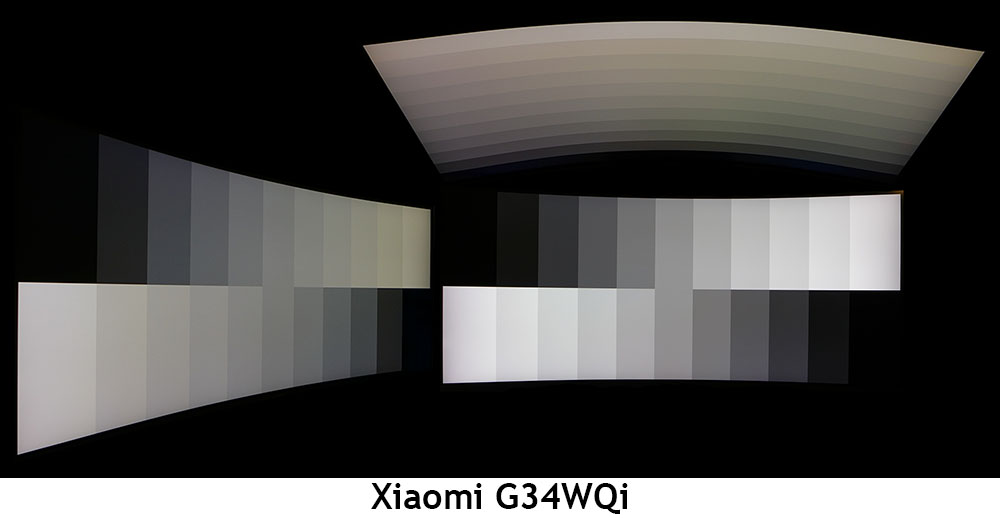Why you can trust Tom's Hardware
To compare the G34WQi, I’ve grouped five WQHD panels: ViewSonic’s XG341C-2K, Monoprice’s 44394, Philips’ 34M2C7600, HP’s Omen 34c and ASRock’s PG34WQ. The ViewSonic and Philips are premium Mini LED panels priced over $1,000.
Pixel Response and Input Lag
Click here to read up on our pixel response and input lag testing procedures.
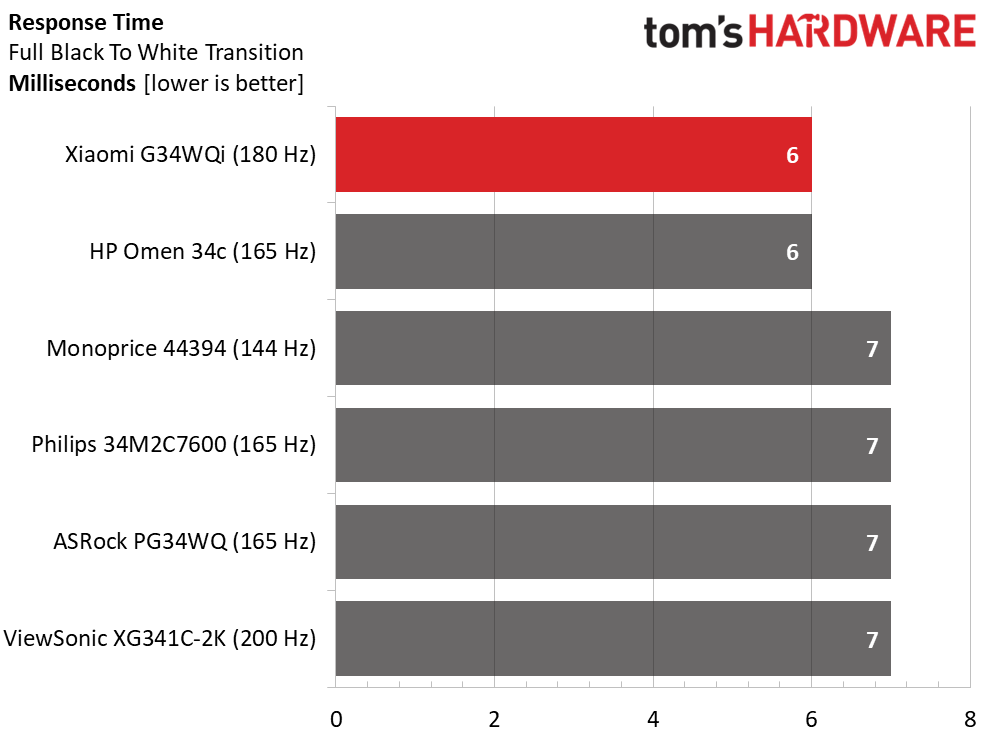
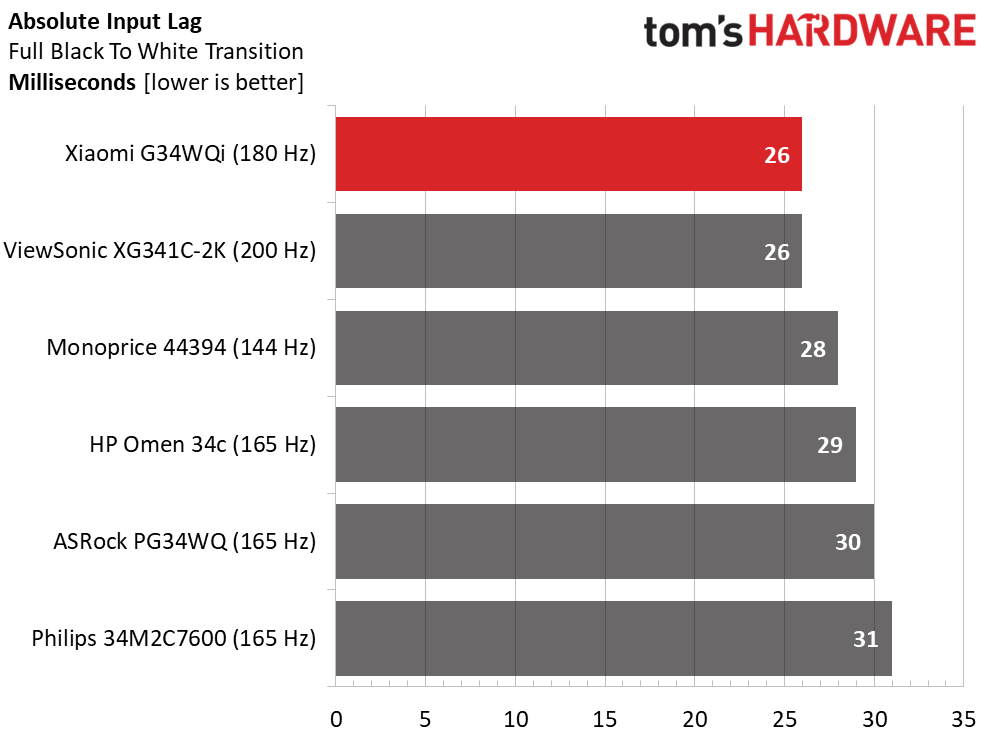
Response times and refresh rates usually go hand-in-hand, but the ViewSonic is unusual because it takes 7ms to draw a full white field while running at 200 Hz. The 180 Hz G34WQi comes in at 6ms, which is respectable. Unfortunately, its overdrive undershoots, leaving visible black trail artifacts behind moving objects. Blur is minimal but you’ll see some breakup in fast camera pans. Input lag is the good part of the G34WQi’s story at a class-leading 26ms. The monitor is quick and precise when aiming and moving.
Test Takeaway: Aside from a weak overdrive, the G34WQi delivers decent performance with quick control response. Rapid movements show some breakup of detail thanks to overdrive undershoot. The blur reduction (MPRT) is a viable alternative that further reduces blur, but the black trail artifacts cannot be removed.
Viewing Angles
The G34WQi looks better in the viewing angle photos than other VA monitors. You can see a 40% light reduction with a green shift in the side view. Looking from the top, light drops by 50%, detail clarity is reduced by low gamma, and there is a red/green tint. The G34WQi isn’t a great choice for sharing but for a single user, it delivers good imagery from edge to edge.
Screen Uniformity
To learn how we measure screen uniformity, click here.
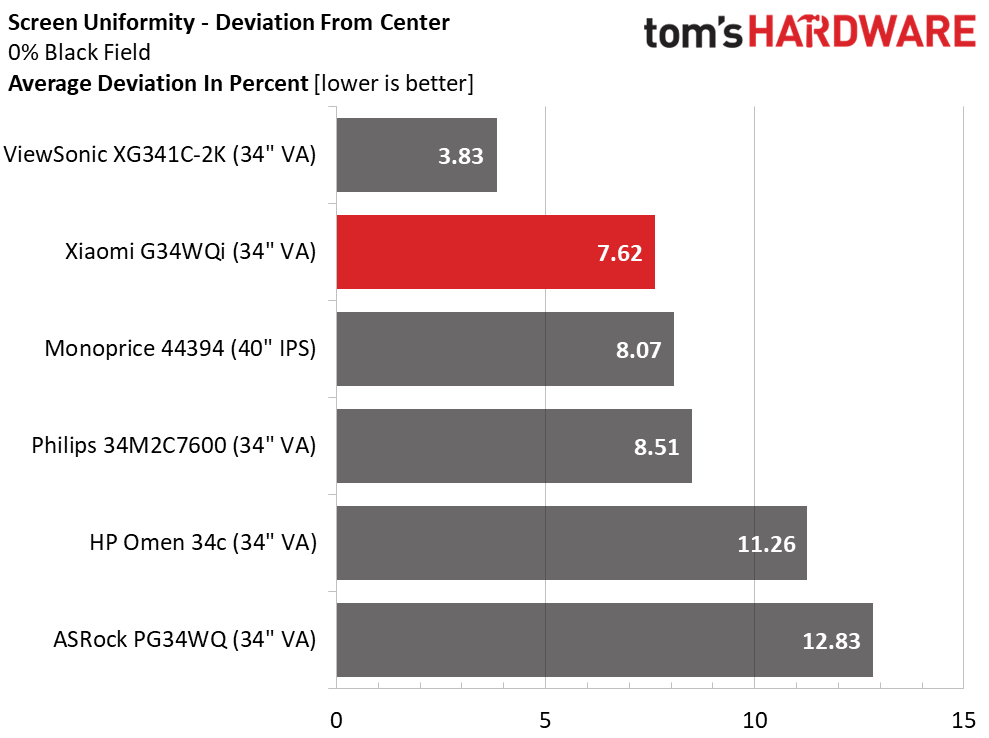
Xiaomi does not skimp on quality control even though the G34WQi is a value-focused monitor. A 7.62% deviation means there are no visible issues. I saw no hotspots, glow, or bleed in my sample. This is excellent performance.
Get Tom's Hardware's best news and in-depth reviews, straight to your inbox.
MORE: Best Gaming Monitors
MORE: How We Test PC Monitors
MORE: How to Buy a PC Monitor
MORE: How to Choose the Best HDR Monitor
Current page: Response, Input Lag, Viewing Angles and Uniformity
Prev Page Features and Specifications Next Page Brightness and Contrast
Christian Eberle is a Contributing Editor for Tom's Hardware US. He's a veteran reviewer of A/V equipment, specializing in monitors. Christian began his obsession with tech when he built his first PC in 1991, a 286 running DOS 3.0 at a blazing 12MHz. In 2006, he undertook training from the Imaging Science Foundation in video calibration and testing and thus started a passion for precise imaging that persists to this day. He is also a professional musician with a degree from the New England Conservatory as a classical bassoonist which he used to good effect as a performer with the West Point Army Band from 1987 to 2013. He enjoys watching movies and listening to high-end audio in his custom-built home theater and can be seen riding trails near his home on a race-ready ICE VTX recumbent trike. Christian enjoys the endless summer in Florida where he lives with his wife and Chihuahua and plays with orchestras around the state.
